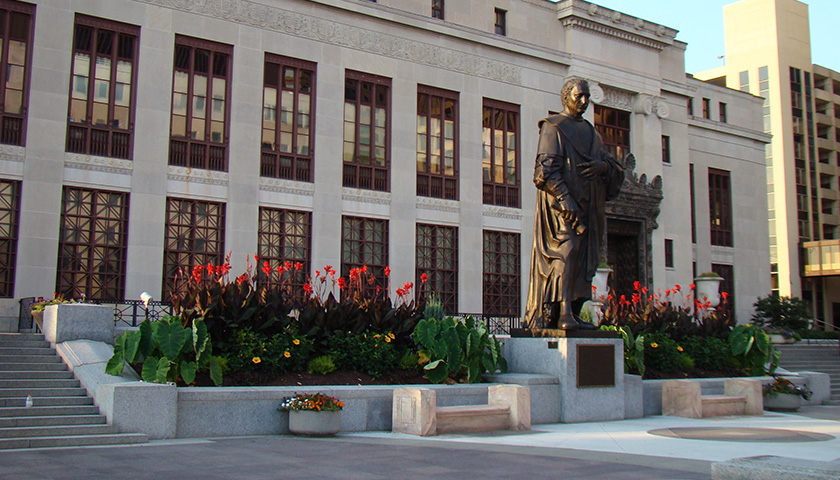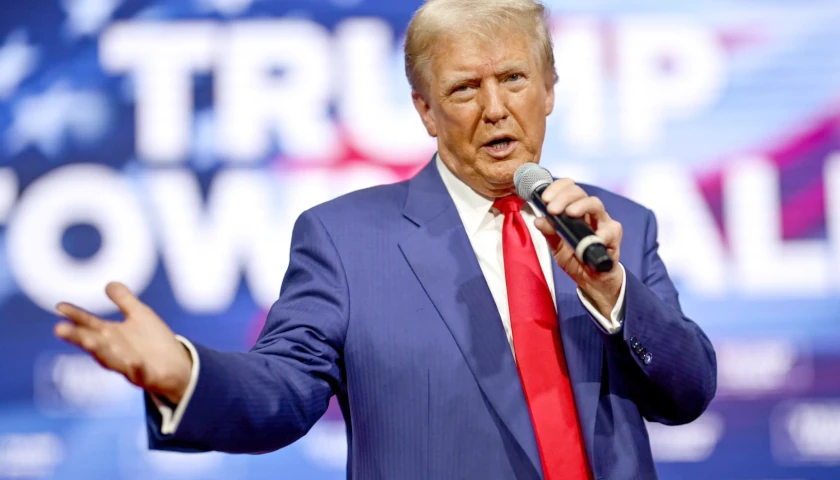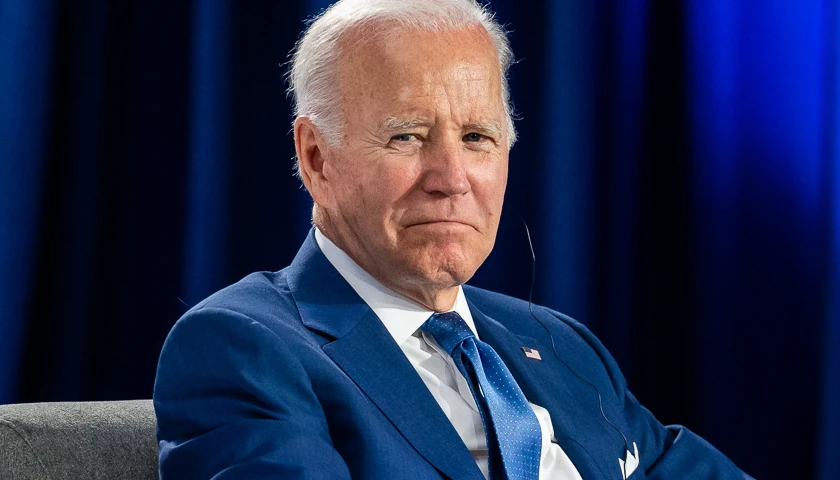On Columbus Day 2022, the disconnect between institutions over whether to commemorate Christopher Columbus persisted, with many progressive-aligned organizations and the Democratic Party making no mention of America’s discoverer and celebrating “Indigenous Peoples’ Day” instead.
Conservative politicians and candidates happily celebrated the traditional holiday.
“Happy Columbus Day to everyone, and especially the amazing Italian American community in Ohio!” Republican Senate candidate J.D. Vance tweeted on Monday.
But liberals and leftists generally demurred, opting instead to blast out messages honoring “Indigenous Peoples’ Day,” an alternative slant on the holiday honoring American Indians and rebuking Columbus for alleged atrocities against them. President Joe Biden even issued a proclamation “call[ing] upon the people of the United States to observe [Indigenous Peoples’ Day] with appropriate ceremonies and activities.”
He would have been pleased to see the response of many left-leaning Ohio elites.
“Happy Indigenous Peoples’ Day,” the American Civil Liberties Union of Ohio wrote in an online message. “Today we celebrate Native cultures and recognize the fights for justice and autonomy that Native Americans still face.” The far-left association went on to claim that it has made strides for the rights of indigenous people to vote and speak freely.
Buckeye State Democrats also resisted praising Columbus.
“Today, Ohio Senate Democrats are celebrating #IndigenousPeoplesDay, a day to honor, celebrate and commemorate the indigenous peoples of America,” the Ohio Senate Democratic Caucus said in a Twitter post.
How Americans should feel about Columbus is a subject that comes up often in debates about education. State Board of Education candidate Tom Jackson, a Democrat who is running in District 10, which includes the city of Akron, made clear he believes Columbus should not be a focal point for commemoration.
“Today’s officially celebrated in Ohio as Columbus Day, but many celebrate Indigenous Peoples Day,” Jackson wrote in an online message to supporters. “It’s a good time to honor the indigenous people of Ohio. It’s a great time to head over to the Board of Elections and cast your ballot.”
The controversy over whether to treat the holiday as a time to revere Columbus goes back years in Ohio, whose capital is of course named after the 15th-century Genoese explorer. The city of Columbus itself stopped recognizing Columbus Day in 2018.
Two years later, Mayor Andrew Ginther (D) ordered the uninstallment of the Christopher Columbus statue that stood outside of City Hall for 55 years, after residents of Genoa, Italy presented the sculpture as a gift in 1955. After racially charged riots fomented by Black Lives Matter and Antifa occurred in June 2020, leftist officials across the United States began demanding that such likenesses of Columbus be removed from public display.
At the time, Ginther said the statue represented “our ugly past” and urged its replacement with artwork that supposedly honors “diversity and inclusion.” Columbus City Council briefly considered passing an ordinance that would reinstall Columbus’s statue, but members indefinitely tabled that measure in July of this year.
Also in 2020, Franklin County, where the state capital is located, recognized Juneteenth — a June 19 celebration of the emancipation of black slaves — as a public holiday in lieu of Columbus Day.
Contentiousness over the discoverer has been apparent elsewhere in Ohio as well. In 2017, the progressive stronghold of Oberlin became the first city in Ohio to recognize Indigenous Peoples’ Day. The event has since become an annual gathering for Oberlin College students and other residents who converge on Tappan Square and demonstrate against what The Oberlin Review, the college’s official student newspaper, called “the ongoing violence of settler colonialism.”
In 2019, the city of Sandusky declared Election Day a paid holiday instead of Columbus Day. City Manager Eric Wobster admitted that, in so doing, the municipality was following a trend, reasoning that “Columbus Day has become controversial, and many cities have eliminated it as a holiday.”
Critics of the revisionist history that leftists have purveyed regarding Columbus often point out that much of that newer historical narrative owes to a report by Francisco de Bobadilla, Columbus’s successor in governing the West Indies and his outspoken political foe. The document denouncing Columbus as a violent tyrant was discovered in a city archive in Volladolid, Spain in 2005.
The state of Ohio is still one of the 19 across America that gives workers the second Monday in October the day off. Maine, the District of Columbia, South Dakota, and New Mexico all celebrate Indigenous Peoples’ Day without recognizing Columbus Day. Twenty-six states don’t grant time off for either day.
– – –
Bradley Vasoli is managing editor of The Ohio Star. Follow Brad on Twitter at @BVasoli. Email tips to [email protected].
Photo “Christopher Columbus Statue Outside State Building” by Dr Bob Hall. CC BY-SA 2.0.





